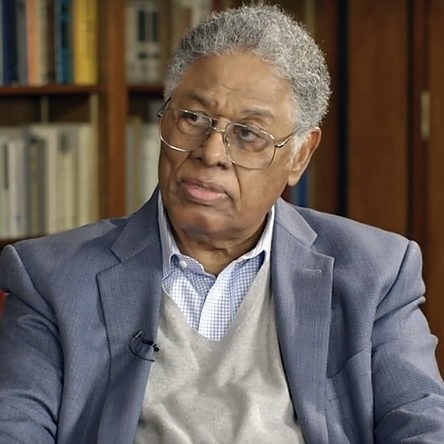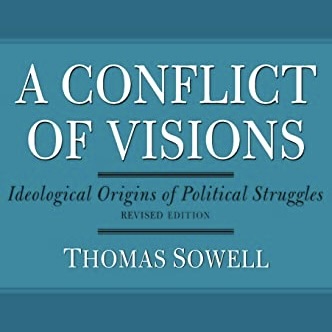The Heart of the Hydra
- Greg Bennett
- Feb 2, 2024
- 5 min read
Updated: Mar 1, 2024
A Conflict of Visions
||| I feel like almost every author must put at least a little bit of themselves into each character they create. Whether it’s their sense of humour, idiosyncracies, or experiences, it seems unlikely that someone could spend time developing a character and not leave some traces behind.
When I was writing Louisiana Hydra, I certainly found myself wandering off on a mental tangent of self-reflection, plucking out little parts of myself that seemed suitable for the scene I was writing. I also borrowed from other family, friends and acquaintances to fill out the cast. You work with what you’ve got, I guess.
The one thing I noticed when I was flushing out the actual storyline was that it was virtually impossible for me not to come to terms with my own duality. If I had to create two or more reasonably well-developed but opposing characters, I had to be able to take a firm position on either side of the line, be it on a simple opinion or a larger philosophical argument.
For me, I found that many of the conflicting views I chose to explore came from a moral or, maybe, an ideological perspective, given the mix of espionage and hacker tradecraft. This story couldn’t rely exclusively on the rights or wrongs of pure greed.
I don’t want to get too heavy in describing where I went to find the heart of this quarrel, but… well, here goes. I promise to keep this short.
In 1987, Tomas Sowell wrote a book titled A Conflict of Visions: Ideological Origins of Political Struggles. I won’t claim to have read the book cover to cover, but I have digested enough for it to have profoundly impacted how I look at politics these days.
In short, Sowell outlines two visions: constrained and unconstrained.
The constrained vision sees human beings as inherently flawed. Learned human experience and traditions evolve in response to human nature's intended or unintended consequences. Therefore, the guiding principle is that people, even those in a trusted position, are flawed and can’t be trusted unconditionally to always do the right thing. However, this vision strongly supports the right of the people to set their own course. To that end, an unimpeachable set of checks and balances must be implemented for society and the institutions that govern them, given that, among other things, absolute power corrupts absolutely.
The unconstrained vision has a much more optimistic view of human nature. It holds that human potential can create the right institutions and suitable policies that will remediate most, if not all, societal woes. It recognizes the existence and value of the intellectuals and experts our societies produce and looks to them to guide and shape our society. These intellectuals view society as malleable and capable of ongoing improvement under their enlightened direction.
The constrained vision allows society to evolve naturally, opting to course-correct if and when the less desirable outcomes begin to manifest.
The unconstrained vision tends toward leaving the creation of a grand design to the intellectuals and experts, which, if closely followed, will result in progress toward a more utopian society.
OK, sorry. That was a lot.
Anyway, I will admit that between the constrained and unconstrained vision, I personally lean a lot more one way than the other, but there are parts of each that I can see as reasonable. Hence my duality. By default, my protagonists lean in the same direction as I do. Further, I felt that if I was to ensure that all my characters, both protagonists and antagonists, were believable, I had to arm each side with a healthy conviction to one of these two visions.
In a weird way, I began to stage an argument for freedom and free speech right in the middle of a decent mystery thriller novel!
Let me give you an example of how I tried to frame the constrained vision. This is a passage from the protagonist’s position in my story:
“Senator Glenway was unwilling to accept this ‘natural’ transition, and Stephanie Borden was of a similar mind. They both felt strongly that a steady diet of pharmaceuticals and excuses had softened the American resolve. American integrity had been degraded by a culture rife with lies and half-truths designed solely to garner support for what would otherwise be unsupportable positions and perspectives. American patriotism had been weaponized to take all the attributes that made it the quintessential democracy and use them to condemn the American system as a tool of oppression and colonial elitism.”
But certainly, I had to create a counter-point to this type of indictment. And I did, as is found in this passage, delivered by one of the story’s antagonists:
“The only reason anything worthwhile gets done anymore is if someone stands to make money from it. That is capitalism in motion, and it is the world we live in. But surely you can see that identifying the various types of underlying medical issues we face as a global community and working to minimize or eradicate their impact is more important than worrying if someone will get rich from providing that peace of mind. Yours is very much a crab-in-the-bucket mentality, wouldn’t you say? Advances do not come into being for free. Western governments are crumbling because their citizens seem to think governments have magical powers, allowing them to create solutions out of nothing. And why do I say nothing? Because that is a pretty close approximation of your average citizen’s contribution. Nothing. Ask the average citizen of a G20 country the taxes they would like to contribute to pay for all the services they receive, and they will say ‘None’. Ask that same citizen how many services they are willing to give up, and they will say ‘None’. It is unsustainable. And so, some governments and entrepreneurs worldwide are forced to take alternative measures to protect us despite widespread selfish behaviour. But please, Sir. Feel free to stand in the way of those trying to keep us moving forward as a species.”
From my perspective, I more or less support both of these guys' positions. Of course, not so much that I could say, ‘Yes. That makes sense. Do exactly that.’ And that is really the part that I struggle with (and I imagine many people struggle with). Everything in moderation.
As a society, we like to see clear-cut winners and losers. Nobody wants to see two sides go at it for any length of time only to end up in a draw. Culturally, that is completely unsatisfying. Makes you wonder why the two sides even bothered in the first place.
But that point of view is what seems to have made our politics so divisive and polarized. We are made to believe that winning and losing is everything. But the fact is, whether you choose to roll your eyes or not, politics is a game of reconciliation, not win or lose. It is recognizing that everyone has an opinion. Opinions are like… well, I won’t repeat that analogy. Anyway, there should be no problem allowing everyone to be heard. Because once everyone is heard, the ideas shared can be merged and morphed into something everyone can live with.
With all that swirling around in my head, there was one thing I was extremely cognisant of when I was writing Hydra. Don’t start preaching. So, if you’ve made it this far into this blog, I want to assure you that the passages I quoted above are about as close as I got in Hydra to stating anything resembling a philosophical point of view. I will leave the preaching to my non-fiction cousins.
All I wanted was to write a nice little spy/hacker story. And I wanted it to deal with some of the more current technological and political realities. I hope I did so without putting anyone off. I mean, it is the world we live in.
Enjoy.
G











Comments